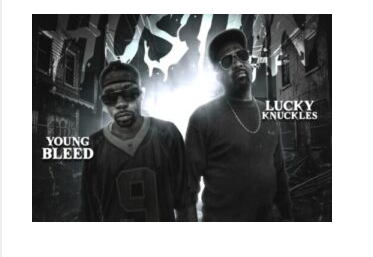The Hip-Hop community is reeling from devastating news following the confirmed death of rapper Young Bleed, born Glenn Clifton, who passed away after suffering a severe brain aneurysm. The beloved Baton Rouge artist reportedly endured an accidental fall over the weekend following an appearance at a rap battle event — moments after fans said he appeared upbeat, energized, and in high spirits.

Authorities confirmed that Clifton was transported to a nearby hospital immediately after the fall, where doctors determined he had sustained a brain bleed resulting from traumatic head injury. Despite multiple days of medical intervention and efforts to stabilize his condition, Young Bleed tragically passed away, leaving fans, fellow musicians, and industry peers heartbroken and stunned.
Young Bleed’s death marks the loss of a deeply influential voice within Southern rap culture. Rising to prominence in the late 90s, he first gained national recognition through his collaboration with C-Loc on the track “How You Do That.” The song captured the attention of No Limit frontman Master P, eventually leading to a remixed version featured on the 1997 film soundtrack I’m Bout It. That single breakthrough moment helped propel Young Bleed into mainstream recognition.
Under Master P’s mentorship, Young Bleed signed with Priority Records and released his debut studio album My Balls & My Word in 1998. The record became a massive commercial success — hitting No. 10 on the Billboard 200, topping the R&B/Hip-Hop Albums chart, and later achieving platinum status. His unique delivery, rooted in Southern slow-burn cadence, vivid lyricism, and raw poetic storytelling, earned him immediate respect throughout the culture.
While he continued to create music over the years, his early work especially left a powerful imprint on generations of Southern rappers who would follow. Young Bleed was admired not only for the content of his bars, but the depth and honesty behind his message — his music was lived experience, soul, pain, and resilience captured in verse.
Tributes have already begun flooding social media, with artists, DJ’s, producers, and long-time supporters expressing heartbreak and gratitude for his impact.
“He opened doors for so many and changed the sound of Southern rap forever,” one fellow rapper shared. “His voice was one of one. Authentic. Original. And his legacy is forever locked in.”
As fans push for proper recognition of his legacy — both past and present — the Hip-Hop world reflects not only on Young Bleed’s monumental influence, but the fragility and unpredictability of life that his sudden passing reminds us of.
His contribution to the culture will continue to live on through every verse, every mixtape, every producer he inspired, and every artist who grew up on his sound. Young Bleed gave Hip-Hop truth — and Hip-Hop will carry that truth forward in his honor.